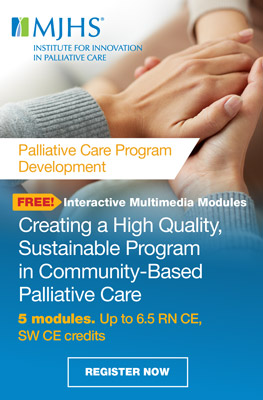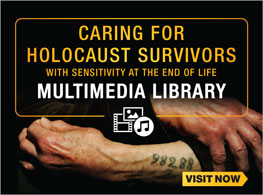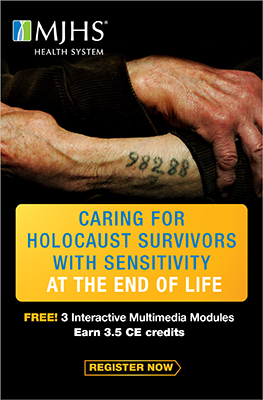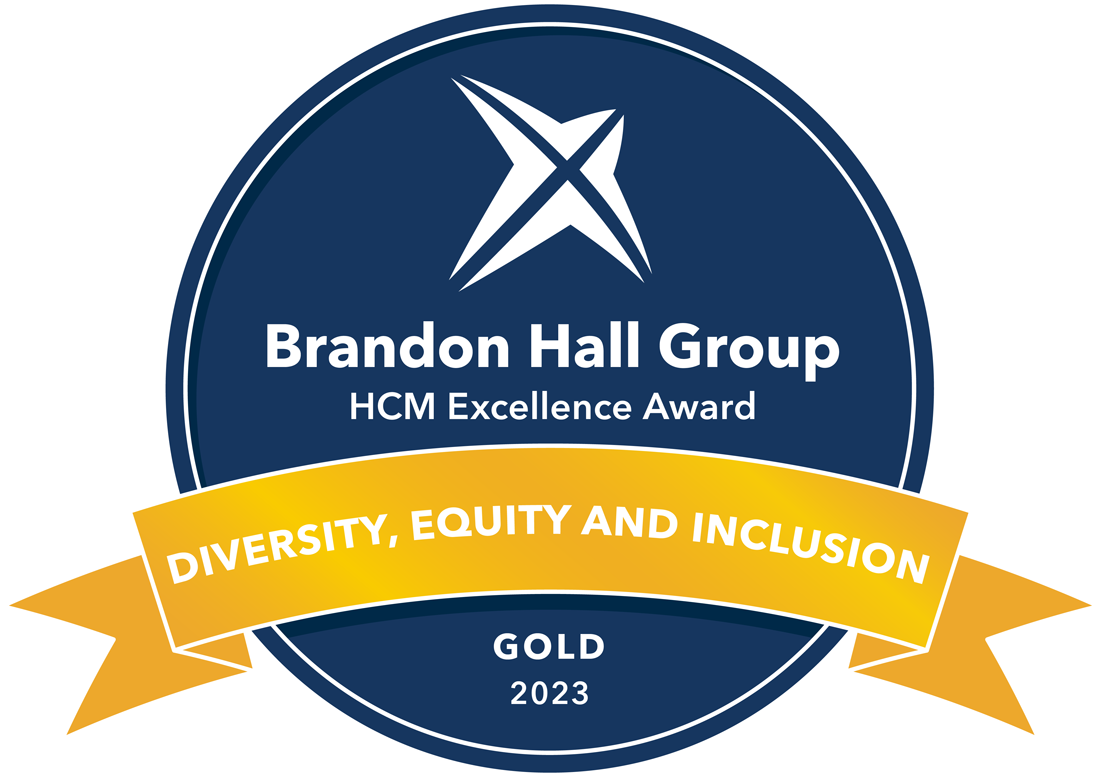Hospice & Palliative Care
ONLINE CONTINUING EDUCATION
Learn Anytime. Earn Credits. Improve Practice.
ON-DEMAND WEBINAR SERIES:
UNDERSTANDING AND IMPROVING HOSPICE UNDERUTILIZATION

Russell K. Portenoy, MD
Clinical Professor, Voluntary
Department of Family and Social Medicine
Albert Einstein College of Medicine
Purpose: In this webinar, attendees will gain knowledge about the value proposition and underutilization of the Hospice benefit, patient eligibility and enrollment practices, and the manifold barriers to access, and will acquire information about changes in practice that may improve hospice utilization.
Objectives:
- Discuss the elements that comprise the Hospice benefit in the U.S.
- Explain the regulatory requirements for Hospice eligibility
- Discuss the array of factors that may limit access to hospice use
- Present strategies for improving Hospice utilization at the practice level
- Describe the types of next steps that would be needed to improve access to hospice throughout the healthcare system
Target Audience: Primary care providers, nurse practitioners, palliative care specialists, pain specialists, registered nurses, advanced practice nurses, registered nurses with a specialty in palliative care/hospice, social workers, case managers, allied health professionals, fellows, residents, and medical students
Criteria for Successful Completion:
- Attendance at entire session
- Submission of completed evaluation form
- Successful completion of a posttest; 80% passing grade (mandatory to receive CE credit for social workers)
Continuing Education Credits: 1.0
Continuing Education Accreditation
Nurses: The MJHS Institute for Innovation in Palliative Care is an approved provider of nursing continuing professional development by the Northeast Multistate Division Education Unit, an accredited approver by the American Nurses Credentialing Center’s Commission on Accreditation.
Social Workers: The MJHS Institute for Innovation in Palliative Care SW CPE is recognized by the New York State Education Department’s State Board for Social Work as an approved provider of continuing education for licensed social workers #0242.
Case Managers: This program has been pre-approved by The Commission for Case Manager Certification to provide continuing education credit to CCM® board certified case managers. The course is approved for 1.0 CE contact hour.
To claim this CE, log into your CCMC Dashboard at www.ccmcertification.org.
Fees:
Free (includes CE/CCMC certificate)
Release Date: November 11, 2021
Expiration Date: March 31, 2028 (for Nurses); January 31, 2028 (for NYS Social Workers); November 18, 2026 (for Case Managers)
Disclosures:
Russell K. Portenoy, MD, has no financial arrangements or affiliations with any commercial entities whose products, research, or services may be discussed in these materials. Any discussion of investigational or unlabeled uses of a product will be identified.
No other Planning Committee Member has financial disclosures.
Planning Committee Members
Myra Glajchen, DSW
Kerrianne P. Page, MD, HMDC
Joyce Palmieri, MS, RN, CHPN
Karen Richards, PhD, EdS
Funding Disclosure: No commercial funding has been accepted for the activity.
Location: Online at https://www.mjhspalliativeinstitute.org/e-learning/
The MJHS Institute for Innovation in Palliative Care is pleased to offer free interdisciplinary palliative care webinars, live and on demand, delivered by frontline experts, typically offering Continuing Medical Education (CME), Nursing continuing education (CE), Social Work CE credits, Case Manager CCMC CE credits, and Music Therapy CE credits.
Our free interactive multimedia modules on Community-Based Palliative Care Program Development and Caring for Holocaust Survivors With Sensitivity at End of Life offer up to 9.75 CE credits.
Free pdf downloads now available: 15 palliative care professional factsheets and patient education handouts on 18 topics in English, Spanish, Haitian Creole, Arabic, French, and Russian.
















